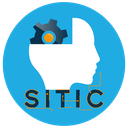Executive Secretary

II Simposio Internacional sobre "Generación y Transferencia de Conocimiento para la Transformación Digital"
SITIC2023
Resumen
Los eventos meteorológicos son fenómenos naturales que afectan a los humanos desde tiempos inmemoriales. El desarrollo de la computación como ciencia ha permitido el uso de diferentes tecnologías como la web semántica, el internet de las cosas y el aprendizaje automático como poderosas herramientas para la detección de dichos eventos. En la presente investigación se utilizaron como caso de estudio los valores de las diferentes variables meteorológicas obtenidos por diversos sensores ubicados en el estado de Iowa siendo proporcionada esta información por el portal datagov. Aplicando técnicas de generalización, especificación y subdivisión para reutilizar ontologías ya definidas como IotStream, SOSA, Iot-Lite se diseñó la ontología DEC (Detección de eventos de Clima) para el correcto manejo de los datos. Se utilizó la herramienta Neo4J para definir el modelo de aprendizaje, se seleccionaron los algoritmos de predicción teniendo en cuenta los diferentes tipos de datos que serán necesario procesar y se crearon las reglas basadas en sentencias Cypher proporcionando mayor expresividad. Se obtuvo un sistema con una estructura basada en grafos que integra diferentes técnicas para procesar y analizar los datos recopilados que permiten modelar las relaciones entre los diferentes elementos involucrados como variables meteorológicas, ubicaciones geográficas y tiempo, así como una mejor visualización y comprensión de las relaciones entre los diferentes elementos. Las técnicas de aprendizaje automático aplicadas para identificar patrones y tendencias en los datos permitirán detectar de forma precisa y eficientes los diferentes eventos climáticos facilitando una mejor toma de decisiones y acciones preventivas ante eventos climáticos adversos.
Abstract
Meteorological events are natural phenomena that affect humans since time immemorial. The development of computation as a science has allowed the use of different technologies such as the semantic web, the internet of things and machine learning as powerful tools for the detection of such events. In the present investigation, the values of the different meteorological variables obtained by different sensors located in the state of Iowa were used as a case study, and this information was provided by the datagov portal. Applying generalization, specification and subdivision techniques to reuse ontologies already defined as IotStream, SOSA, Iot-Lite was designed the ontology DEC (Detection of Climate Events) for the correct handling of data. The Neo4J tool was used to define the learning model, the prediction algorithms were selected taking into account the different types of data that will need to be processed and rules based on Cipher statements were created providing greater expressiveness. A system with a graph-based structure was obtained that integrates different techniques to process and analyze the collected data that allow modeling the relationships between the different elements involved as meteorological variables, geographical locations and time, as well as a better visualization and understanding of the relationships between the different elements. The machine learning techniques applied to identify patterns and trends in the data will allow the accurate and efficient detection of different climatic events, facilitating better decision-making and preventive actions in the face of adverse climatic events.
Sobre el ponente

Jesus Daniel

Discussion




